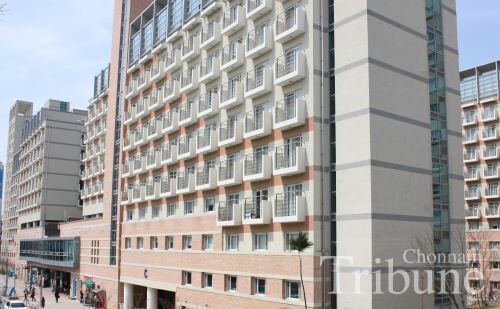
In the Constitution of Korea, it is stated that all citizens shall be entitled to a life worthy of human beings and shall have the right to a healthy and pleasant environment. Due to inflation and the overheated real estate market, it is getting harder and harder to live in a human rights-friendly environment. The government is aware of this and made many housing policies to help young people get an adequate residence. As a result, the overall interest in living in a good environment has grown a lot. However, there has not been enough discussion about what a quality, healthy and pleasant environment is when it comes to dormitories of universities. The attention has been focused on the quantity of dormitories rather than on the environment. According to the press release issued by the Ministry of Education on Oct. 31, dormitory accommodation capacity of universities in Korea was only 22.8 percent in 2023.
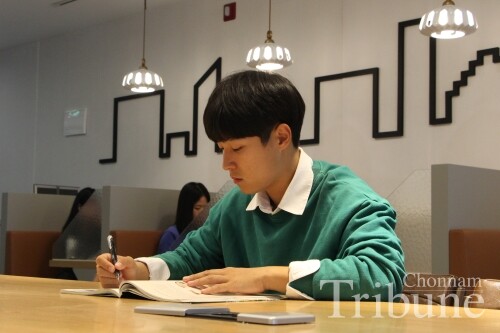
Even if the student housing occupancy rate is low like this, the environment of dormitories may seem fine; however, dormitory students say that there are problems regarding the quality of university residence halls. Especially, since it is the first place they start living away from their family independently, most of them are unaware of how to handle the problems. The Chonnam Tribune delved into the recent problems in the residence halls at Chonnam National University (CNU) and how they can be effectively dealt with.
Dealing with Facility Problems
The residence hall buildings were built more than a decade ago; Residence Hall 7 was built in 2001, Residence Hall 8 was built in 2007, and Residence Hall 9 was built in 2008. Consequently, problems with the facilities are continuously occurring and improvements are being made simultaneously. The study room in Residence Hall 9, which had not changed for 14 years, was remodeled to the Bandi Lounge last semester. The chairs and mattresses in each room were too old to be used, so they were both replaced with new ones this year. “After I reported that my bathroom fan was broken on the residence halls website, it got fixed the day right after. I was surprised by how fast the problem was treated,” said Feberose Castro (Global Korea Scholarship Student, Language Education Center).
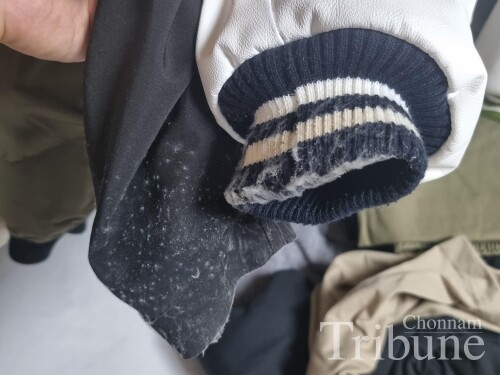
According to the General Student Council, most of the inquiries about the residence halls facilities were about the mold problem this summer. The rainy season lasted very long; thus, mold was created everywhere such as on the walls, clothes, bags, shelves, and under the bed in the dormitory rooms. The problem was especially severe because the rooms were left without any ventilation for a long period of time while resident students were visiting their family during the summer break. The cold air coming out from the air conditioner was still humid, unable to solve the humidity. “Two weeks after summer break started, I came back to my room and found lots of mold, especially on the wall next to my bed. So, I had to buy a dehumidifier myself to solve this problem,” said Kwak Tae-yeong (Freshman, Division of Special Education), living in Residence Hall 9.
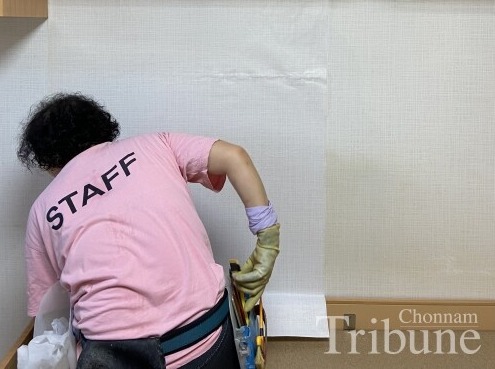
The Residence Hall Administration Office continuously made efforts to improve and solve the problem. They eliminated the mold in the rooms that requested it and changed the moldy wallpaper for a new one. If the mold situation was too severe, they helped students move to a better room. They also provided students with moisture repelling agents and sterilization tissues. Chief of Administration Seo Myeong-won said, “We are making plans to avoid the recurrence of this problem next year. We will make sure ventilation is done regularly in unoccupied rooms and increase the air conditioner operation time. We cannot replace all the air conditioners while students are living, thus, we plan to check if any improvements can be made such as fixing rooms with malfunctioning fans." It may not be enough to entirely solve the problems of facilities in the dormitories, so the administration office should provide convenient facility repairs for students. This is what needs to be focused on for the pleasant environment of dormitories.
Changing Operation Systems and Rules
As the residence hall is a shared living place, there are systems and rules for resident students. There is a curfew from 1:00 to 5:00, however, if they submit a request of delayed return form with the agreement of guardians, they can be exempt from the curfew. Selecting a meal plan is mandatory for students who choose Residence Hall 9. “Even though I do not like cafeteria food, it was mandatory for me to choose a meal plan to enter the residence hall,” said Feberose Castro. In 2013, the mandatory meal plan became optional after continuous conversations between the residence hall cafeteria and the General Student Council. Yet, it became mandatory again in the first semester of 2022 for the continuous operation of the cafeteria.
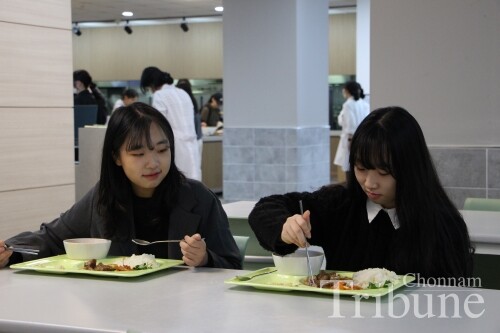
The administration office needs to change unreasonable rules and regulations to improve the inconvenience that resident students experience while living in the residence halls, after taking their opinions into account. They should collaborate with the students when it comes to the operation systems and rules. There are such cases regarding regular room inspections and an eligibility verification method for applying to the residence halls. The office conducted regular monthly inspections on the first Thursday of every month. After a survey of which day was the most convenient for inspection, the inspection day was changed this semester to the first Wednesday of every month. Furthermore, freshmen always had trouble submitting the right documents to prove that they lived outside Gwangju city, which qualifies them to live in the residence hall. Due to this, many of the freshmen were not able to live in the residence halls. Thus, from next year, the office will only check the address on the university application form submitted for entry to confirm that they live outside of Gwangju city.
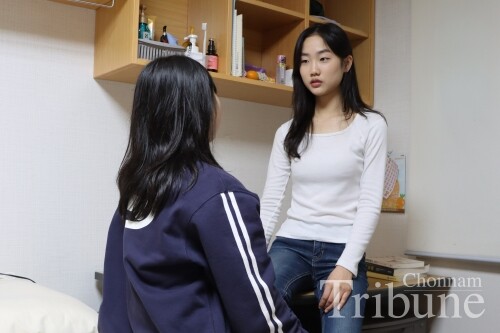
Resident students continuously mention stress concerning the trouble between roommates. “I usually go to sleep before midnight, but my roommate played computer games until the morning. So it was tough to get a good night’s sleep,” said a male sophomore student who wanted to remain anonymous. Resident students who have lived an entirely different life start living together in the residence halls, so conflicts between roommates are inevitable. Currently, when they choose rooms and roommates before entering the residence halls, they can read a short description of the roommate’s life pattern. However, writing the description is not mandatory and there are limits on the number of words that can be written, so explicit information cannot be shared. A pre-questionnaire about residents’ lifestyle is needed so that residents with a similar lifestyle can become roommates. The questionnaire may include likes and dislikes of lifestyles, such as whether they are a morning person or not, whether they are sensitive when it comes to cleaning, or if they smoke. These kinds of suggestions for a better residence hall system can be made by residents. They are not the targets of the residence halls’ control and discipline. They have the authority to make their own rules in the place they live.
Mutual Communication Is the Key
Regarding the environment of the CNU Residence Halls, problems with the facilities and inconveniences with the systems or rules will continuously occur. Thus, communication between resident students and the administration office is the most important solution. An effective way to communicate is the resident satisfaction survey. The satisfaction survey results of Residence Hall 7 and 8 are not open to residents, which makes it hard for the residents to understand the purpose of the survey. The results of the 2023 second quarter satisfaction survey of Residence Halls 9 are open and show that they are highly satisfied with the environment. Yet, the actual satisfaction does not seem to align with the results. "It doesn’t seem that showing dissatisfaction through the survey will change the residence halls dramatically anyway,” said Kim Joo-hee (Sophomore, Dept. of Biology Education).
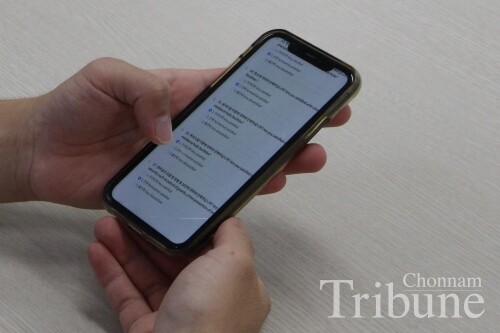
Effective communication between residents and dormitory staff is the most important factor for improving the environment of the residence halls. If it does not happen, nothing can be improved. In order to do so, the administration office should encourage residents to approach them with any concerns or questions, as exemplified by the Dean of Residence Halls. They should also responsibly listen to the students and make necessary changes as required. Then, through mutual communication, it is not far from our reach that all of the residents can concentrate on their studies while living in comfortable residence halls on campus.
By Han Seung-hwan, Reporter

